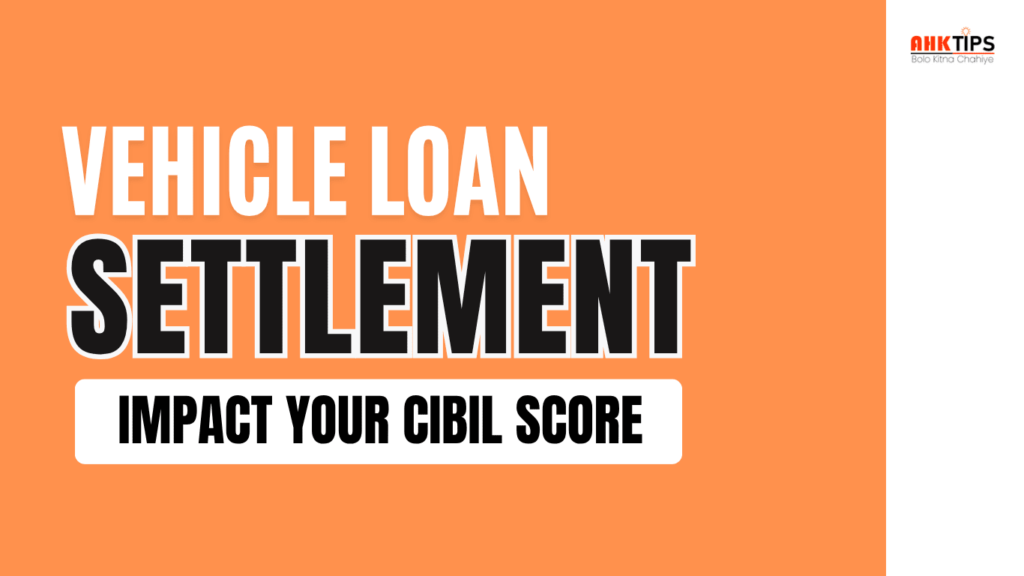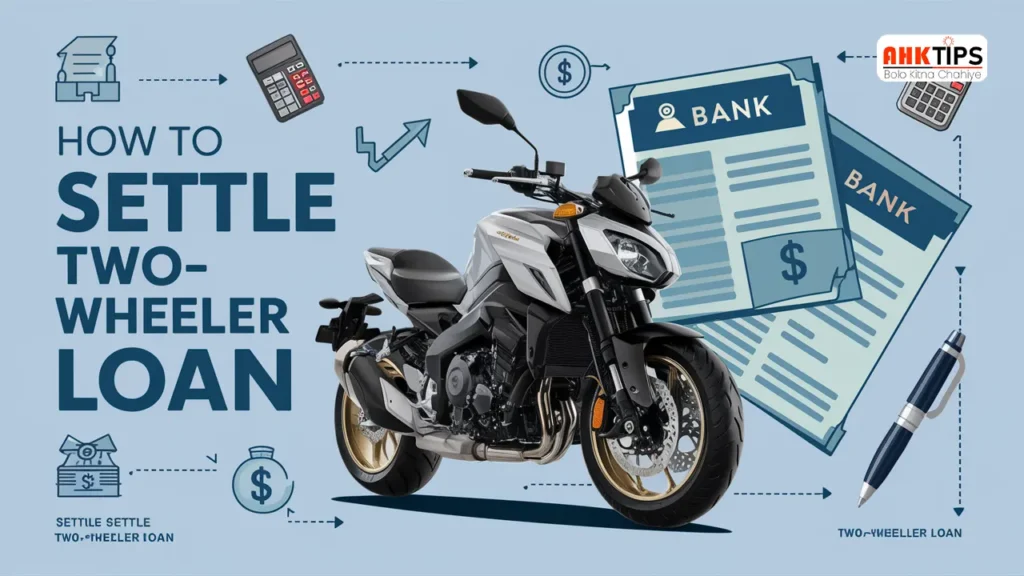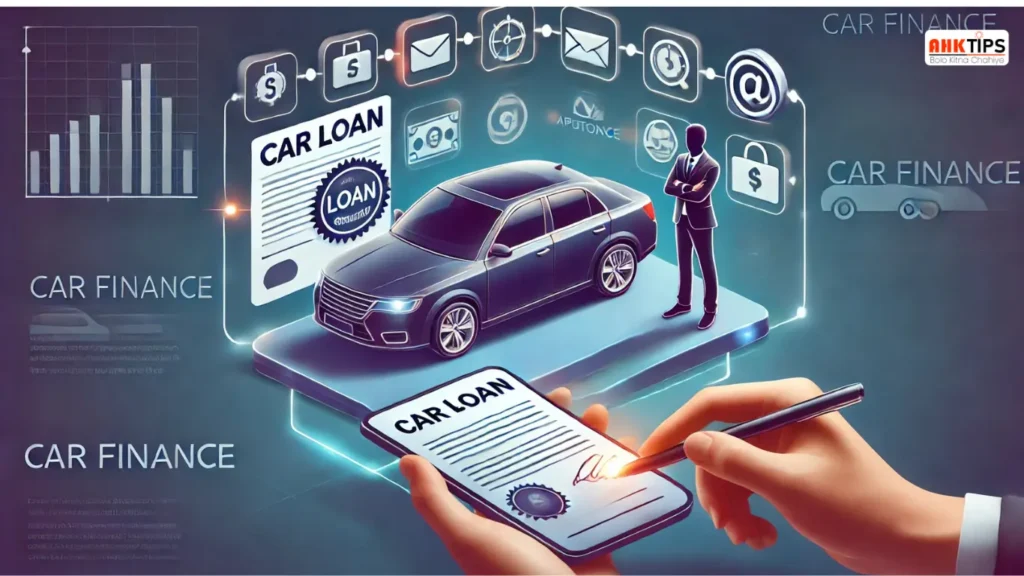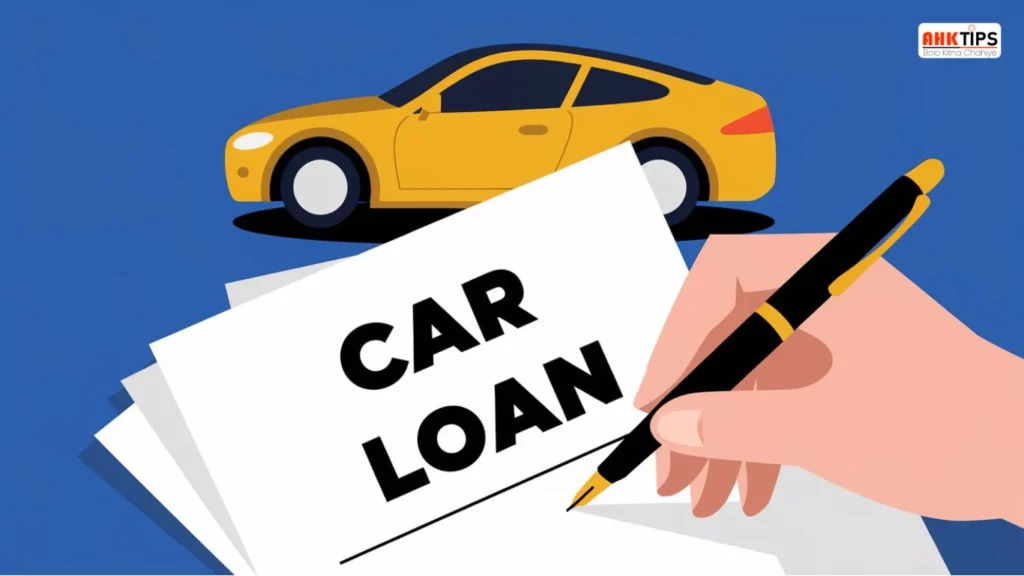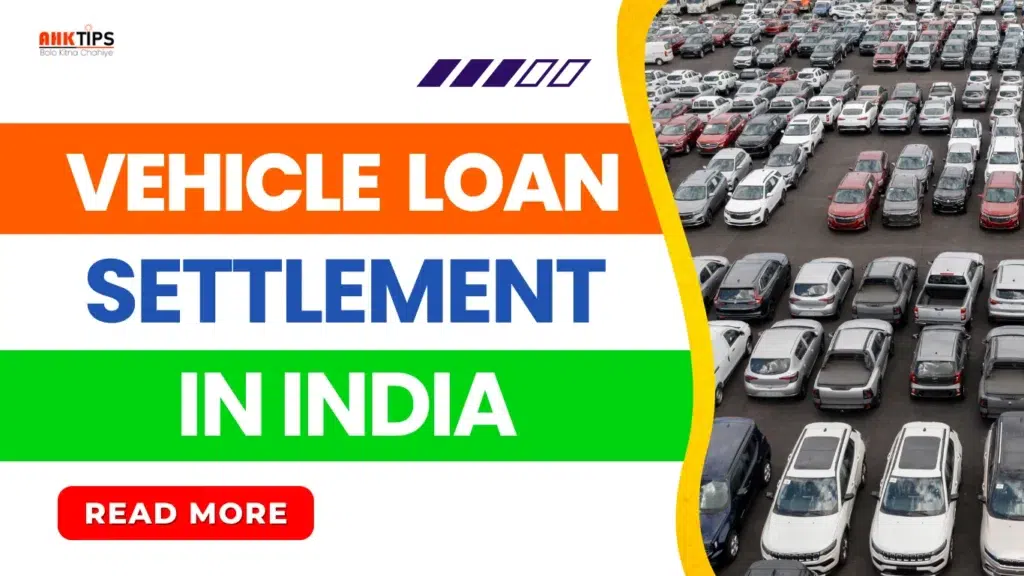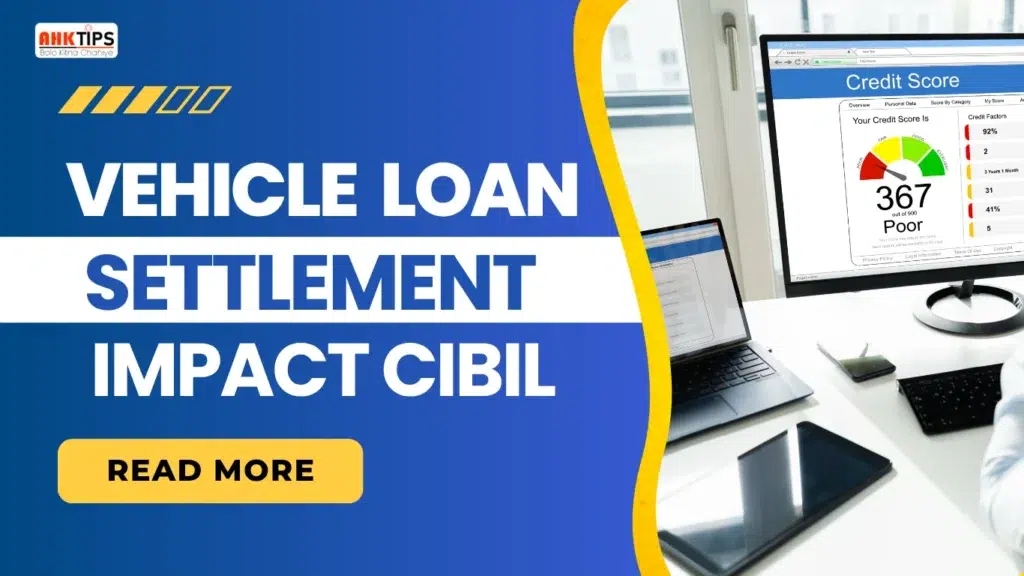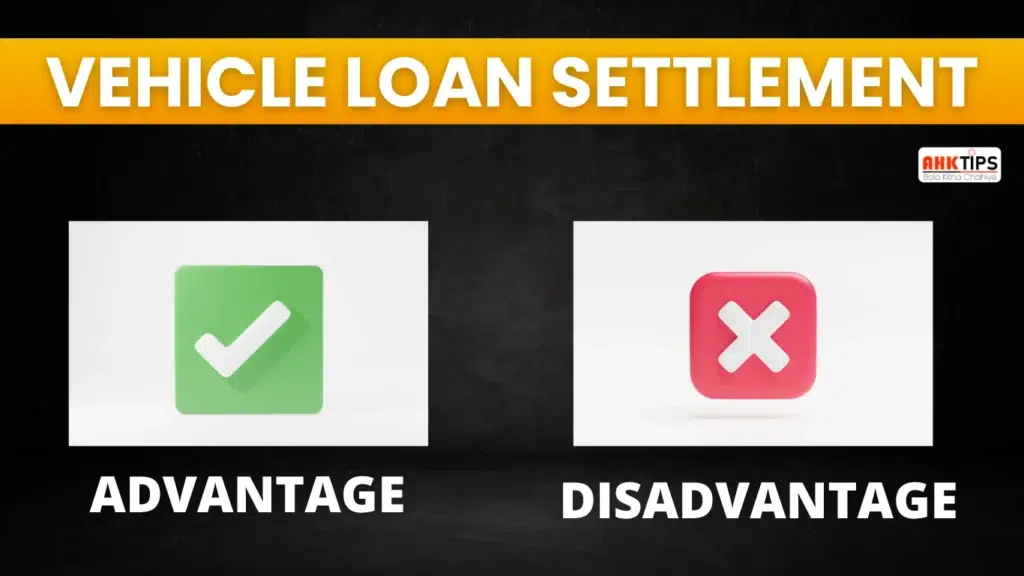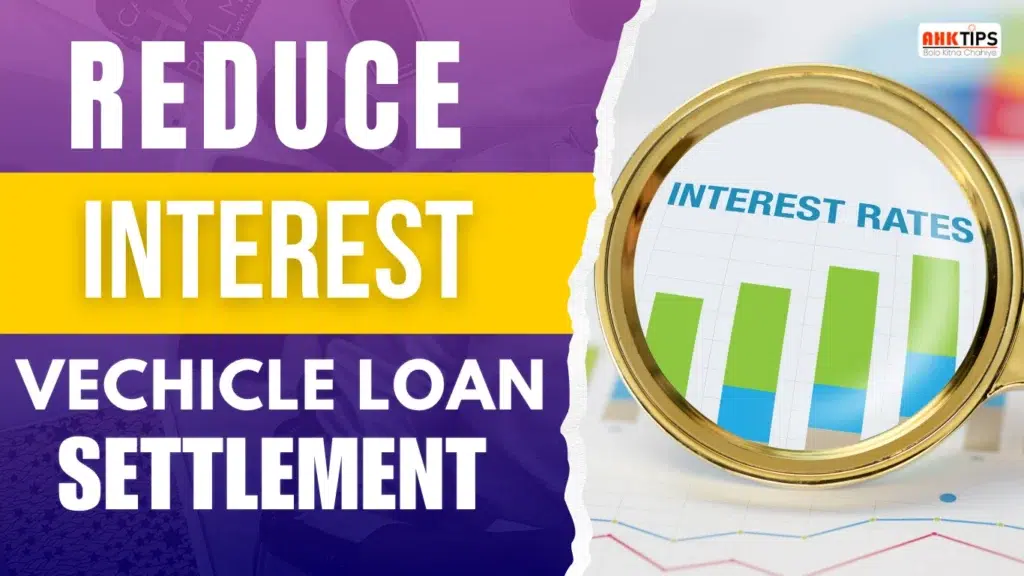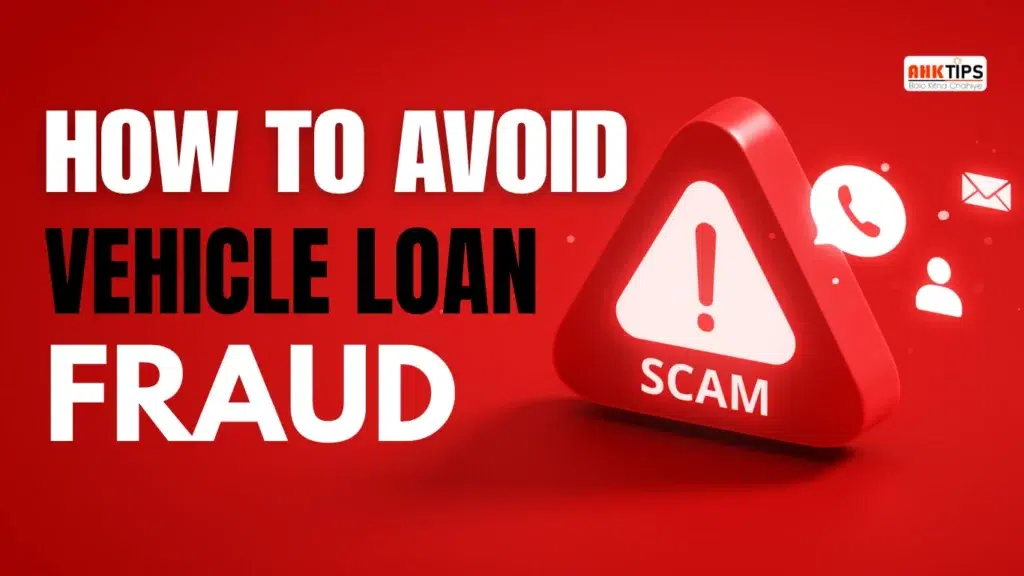Summary
Early vehicle loan settlement means that you are paying your loan off early, either completely or by agreeing to a reduced lump sum. This could lead to interest savings or help you to avoid repossession, but it could have a knock-on effect on your credit score. If you see “paid in full”, your score could increase, and if it says “settled”, that means you did not repay the full loan amount, and your score may drop. The status may stay on your report anywhere from a couple of years up to 7 years. To minimise any negative impact, you can try to nail the reporting status with your lender, keep paying your other accounts on time, and check your credit report regularly. Settling a loan has its pros and cons, so you ultimately have to consider the pros and cons of settling based on your situation.
Introduction
Although paying a vehicle loan off early seems like a good financial option, it is important to understand how it can affect your credit score. Many borrowers end up settling or paying off their auto loans early to limit the interest they pay or so they don’t default. This article will explain what it means to settle a vehicle loan early, how it can influence your credit history, and things to consider before pursuing a payoff. This will also help distinguish between paying in full and settling for less, and the implications of both for your credit history. This article guides you in making the correct decision for your financial well-being.
Settling Vehicle Loan Early Credit Score: How It Affects Your Credit
It could seem like a good idea for your finances to pay off your auto loan early. Before you make this option, one of the most important things to consider is how paying off a car loan early can influence your credit score. This article talks about how paying off a loan early can change your credit score and what you should consider before you do anything.
What Does Settling a Vehicle Loan Early Mean?
When you pay off your auto loan early, you pay off the rest of the debt before the original loan period ends. This could include paying off the complete amount you owe or agreeing to a single payment that is less than the total amount you owe. In either scenario, the goal is to pay off your debt as soon as possible.
Debtors may choose to settle early in some cases to decrease their interest costs or improve their financial status.
Impact of Settling a Vehicle Loan Early on Your Credit Score
Paying off a loan early is not the same as paying it off on time. Paying off a car loan early can help or hurt your credit score.
Positive Impact on Your Credit Score
There are positive and negative aspects about paying off a loan early, but there are also some excellent things that could happen:
Reducing Debt-to-Income Ratio:
Paying off your loan early lowers the amount of debt you still owe, which could help your debt-to-income (DTI) ratio.
Avoiding Default or Repossession:
If you pay off your debt early, you can avoid defaults, repossession, and late payment notes on your credit report. If you settle and don’t miss any payments, your credit score won’t worsen.
Negative Impact on Your Credit Score
Paying off a debt early can be advantageous in certain ways, but it might also affect your credit score. Here are the worst things that could happen:
Settled Status on Your Credit Report:
When you pay off a car loan, your credit report will normally say “settled” instead of “paid in full.” This suggests you didn’t stick to the terms of the loan, which could make lenders less likely to lend you money in the future.
Shorter Credit History:
Paying off your loan early could hurt your credit history, especially if it was one of your first accounts. Lenders have less time to look at how you borrow money if you have a shorter credit history.
Impact on Payment History:
Your payment history is the most essential element that affects your credit score. If you settled early, be sure you didn’t miss any payments or get behind before the settlement.
Why You Should Consider Settling Early
Even if paying off a loan early might not always be the best thing for your credit score right away, there are still reasons why some people choose to do this:
Reducing Interest Payments:
If your loan has a high interest rate, paying it off early can help you save money on interest. Paying off the loan sooner than planned will save you money in the long run because you won’t have to pay interest on the remaining amount.
Financial Freedom:
When people pay off a debt early, they often feel free and relieved about their money. You don’t have to worry about making monthly loan payments, so you may save, invest, or pay off other debts.
Avoiding Repossession:
If you can’t make your auto loan payments and are in danger of losing your car, paying it off early can assist.
How to Minimise the Negative Impact on Your Credit Score
If you want to pay off your auto loan early, there are a few things you can do to protect your credit score:
Negotiate the Settlement Terms:
Before you settle, make sure your lender reports the settlement as “paid in full” instead of “settled.” Some lenders may be willing to adjust the terms if you can pay in full.
Stay Current on Other Accounts:
You should pay your other expenses on time, even if you pay off your car loan early. Even though the settlement will hurt your credit score, this will help keep it in good shape.
Monitor Your Credit Report:
Check your credit report after you pay off the loan to be sure it shows that the loan is paid off. If there are any mistakes, you can argue with the credit bureaus to make sure they correct them.
It’s crucial to know how paying off a car loan early could affect your credit score before you make a choice. It can help with money troubles, but you should weigh the advantages and cons first. By carefully conducting the settlement process, you may be able to limit the negative impacts on your credit and ensure your financial future is better.
Vehicle Loan Paid in Full vs Settled: How Will It Be Reported?
It’s crucial to know how the settlement or payoff will show up on your credit report when you pay off your car loan. A lot of individuals want to know if a settled loan will show up as “paid in full” or “settled.” This difference can have a big impact on your credit score and the loans you can get in the future. Let’s look at how the “paid in full” and “settled” statuses for a vehicle loan function and what they represent for your credit.
What Does “Paid in Full” Mean?
When a vehicle loan is recorded as “paid in full,” it means that the borrower has paid back the entire amount according to the conditions of the loan agreement. This is the best status for your credit report because it demonstrates that you paid off all of your debts.
When you pay off a debt, it normally shows up as a good account on your credit report. This will seem good on your credit report and assist keep your credit score the same or perhaps raise it. Lenders like to see that you paid off a loan without missing payments or changing the terms.
What Does “Settled” Mean?
When a vehicle loan is recorded as “settled,” on the other hand, it signifies you didn’t pay back the whole amount you owed. Instead, you and the lender settled on a lower amount to pay off the debt, which was usually because you were having trouble with money or couldn’t keep making payments.
A loan that is marked as “settled” usually means that you didn’t follow the terms of the loan. This status can make prospective lenders think worse of you because it shows that you didn’t fully follow the debt deal.
How Will Your Loan Be Reported: Paid in Full vs Settled?
It depends on the terms you agree on with your lender during the settlement procedure whether your auto loan is marked as “paid in full” or “settled.”
Paid in Full:
The loan will be listed as “paid in full” if you pay back the complete amount, including any remaining principal and interest. This usually applies to loans that are paid off according to the original terms, either by making regular monthly payments or by paying off the rest of the debt early.
Settled:
If you pay off the loan by negotiating a lower lump sum with your lender, the loan will probably be marked as “settled.” This signifies that you paid off part of the debt, but not all of it. The lender might also write “settled for less than owed” on it. This status usually means that you didn’t follow all the rules of the loan.
How Does a “Settled” Status Affect Your Credit?
Settling your car loan can help you get out of debt, but it can also hurt your credit score and history in a few ways:
Negative Impact:
If you have a settled loan, it means you didn’t fully follow the conditions of your agreement. This could affect your credit score and make it difficult to receive credit in the future. Because the settlement shows a history of not paying obligations in full, lenders may see you as a higher-risk borrower.
Longer-Term Effects:
Like a missed payment or a default, a resolved debt stays on your credit report for up to seven years. Even though you’ve paid off the debt, it could still make you look less trustworthy to lenders.
How to Ensure Your Loan is Reported Favorably
If you’re trying to work out a loan settlement with your lender, there are things you may do to make the loan look better to the credit bureaus:
Negotiate with the Lender:
When you talk about the conditions of the settlement, ask the lender if they will report the loan as “paid in full” instead of “settled.” Lenders may be ready to negotiate with you in some situations, especially if you pay the settlement all at once.
Get Everything in Writing:
Before you make any payments, be sure that all the details of the settlement, such as the negotiated amount and the reporting status, are written down. This will keep you safe in case there are any problems later.
Monitor Your Credit Report:
After you pay off the loan, check your credit report often to make sure the status is right. If the lender says it’s “settled” but you think it should say “paid in full,” you can tell the credit bureau about the mistake.
Keep Your Credit Utilisation Low:
It’s crucial to keep an eye on your other credit accounts once you’ve paid off your car loan. You can lessen the effect of the settlement on your credit score by keeping your credit utilisation ratio low and paying off your credit cards on schedule.
When Should You Settle a Loan?
If you can’t pay back the whole amount of a loan and want to avoid more penalties, late fees, or repossession, settling the loan is an excellent idea. However, you should know that a loan that is categorised as “settled” will probably hurt your credit report, so you should think carefully about the long-term effects before making a decision.
Knowing how the status of your auto loan—paid in full or settled—will be recorded will help you get through the settlement process more easily. If you’re thinking about paying off the loan in full or settling for a lower amount, knowing how each choice will affect your credit will help you make a smart decision.
Pros and Cons of Vehicle Loan Settlement: Is It Worth the Credit Score Impact?
People who are having problems making their monthly payments or are in a bad financial situation right now can benefit from settling their car loans. But before you decide to pay off your loan, you should think about the good and bad things about doing so. One of the most crucial things to consider is how it will affect your credit score. This article talks about the good and bad things about settling a car loan so you can make an informed decision.
What Is a Vehicle Loan Settlement?
A vehicle loan settlement is when you and your lender agree to pay off your loan for less than the entire amount you owe. People frequently make this choice when they can’t keep up with their payments or are experiencing difficulties with money.
Pros of Vehicle Loan Settlement
Settling an auto loan has its perks and cons, but in some circumstances, it is the best thing to do.
Immediate Debt Relief
The best thing about paying off your auto loan is that it gives you peace of mind right away. Settling your debt will help you get rid of part of it, which can provide you with some much-needed breathing room in your budget.
Avoiding Repossession
If you’re behind on your auto loan and are scared about losing your car, paying off the debt can stop the lender from taking it back. If you settle your loan for less than what you owe, you might be able to keep your automobile and get rid of the rest of your debt.
Reducing Total Debt
A settlement can help you pay off your car loan for less than what you owe. This means you’re paying down some of your debt, which could help your finances in the long run, especially if you have more than one debt. If you have less debt overall, you might have more money to do other things, like save or pay off more necessary bills.
Cons of Vehicle Loan Settlement
When it comes to your credit score, settling a car loan has both good and bad points.
Negative Impact on Credit Score
The worst part of settling a loan is that it can lower your credit score. Because of this, your credit score can drop after a settlement.
Long-Term Credit Consequences
If you pay off a debt, it will stay on your credit report for up to seven years. This means that even after you pay it off, the settlement could still make it tougher for you to receive new loans or credit.
Potential Tax Consequences
In rare cases, the IRS may consider the amount of debt that is forgiven or settled to be taxable income. You should contact a tax expert to figure out how a settlement will affect what you owe in taxes.
Risk of the Lender Not Agreeing to Settle
Not all lenders are ready to settle loans, and even if they are, the terms may not be advantageous for you. If you can’t agree with your lender, the settlement process might not be as helpful as you hoped. If you can’t reach a lower balance, the settlement might not be a smart idea either.
Is Settling a Vehicle Loan Worth the Credit Score Impact?
If you’re experiencing difficulties with money, settling your auto loan can help, but you should know what might happen. Settling a car loan has its perks and cons. You might feel better in the short term and lower your debt, but your credit score could take a major hit.
If you opt to settle, you need to pay off the rest of your debt and work on improving your credit. Before you decide to settle, think about other options, like refinancing or making a payment plan. These solutions might not damage your credit score as much.
Conclusion
Paying off a vehicle loan settlement early could be a solid choice, especially during difficult financial times, but you should be aware of how that choice will impact your credit. If your loan is listed as “paid in full,” that will help your credit profile, but if it is listed as settled, that could hurt your credit score, and ultimately, your ability to borrow, even in the future. Before you settle your loan, consider every option that you may have available to you, like refinancing or a payment plan that would not negatively affect your credit score. If you do choose to settle, make sure you negotiate with your lender about the repayment reporting, and check your credit report afterwards! Ultimately, settling your loan
FAQ’s
If it says “settled” instead of “paid in full,” it could hurt your credit score.
When you say “paid in full,” you mean you paid the whole thing. “Settled” suggests you paid less than what you owed, which could hurt your credit.
Yes, you can try to adjust the report’s settings, especially if you’re making a big payment that is close to the full sum.
A settled loan can linger on your credit report for up to seven years, which could make it tougher for you to receive credit in the future.

